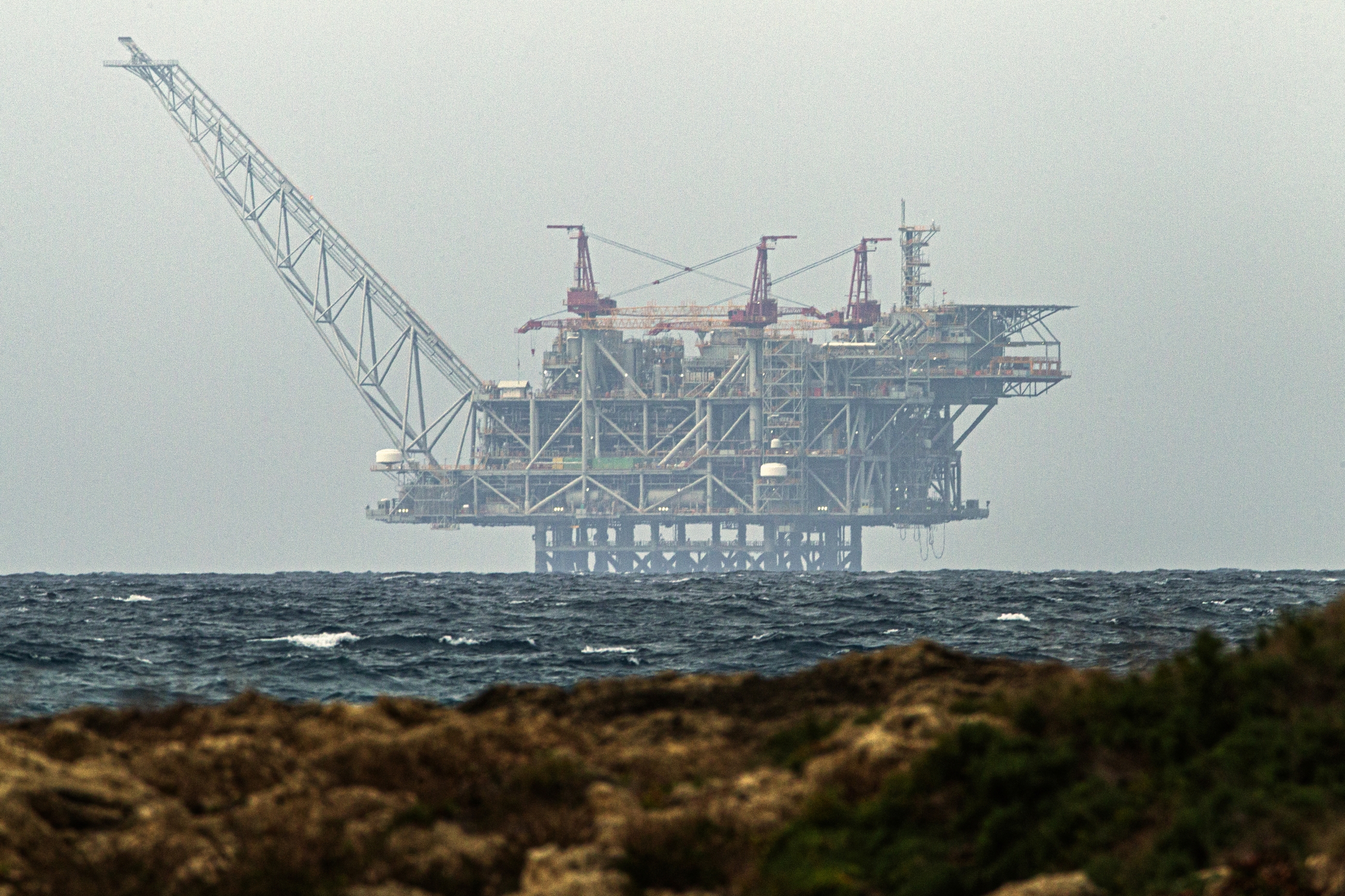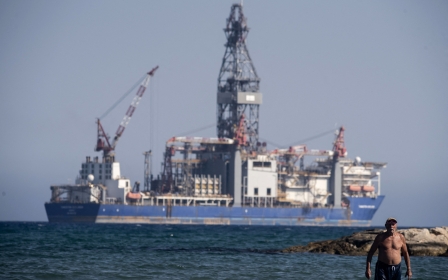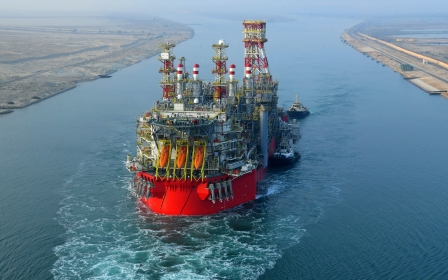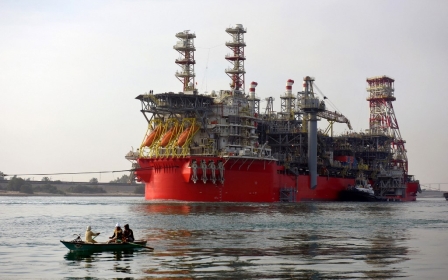Lebanon should drill for gas regardless of maritime deal with Israel, MP says

Lebanon must prepare to drill for gas regardless of whether or not it strikes a maritime demarcation deal with Israel, as its window to exploit Mediterranean energy is rapidly closing, Lebanese MP Neemat Frem told Middle East Eye.
"I'm worried that the most likely outcome is that talks with Israel will stall," Frem said in an interview with MEE in Washington.
"We [Lebanon] need to prepare very quickly for 'plan B', which means drilling in non-contested areas as soon as possible," he added.
Lebanon and Israel have been engaged in US-brokered talks to resolve a festering maritime dispute over the potentially gas-rich territory since 2020. Negotiations have been complicated by the fact that the two countries lack diplomatic relations and are technically in a state of war.
Tensions between the two escalated over the weekend after Israel shot down three drones launched by the Hezbollah movement toward an Israeli gas rig in disputed waters.
'The question is will Israel meet us half way? With their elections coming up, I don’t feel they are in a hurry'
- Neemat Frem, Lebanese MP
The rig lies in the Karish gas field which Israel granted British-Greek company Energean the rights to develop in 2016.
Karish was originally outside the area of dispute between Lebanon and Israel, but last year Beirut unveiled a new map expanding its maritime boundary to include part of the field.
The flare-up renewed concerns that the maritime feud could ignite conflict between two neighbours who are already bitter foes. During a visit to France on Tuesday, Israel's new Prime Minister Yair Lapid warned that if the Lebanese government didn't restrain Hezbollah, "we [Israel] will be compelled to do so."
In 2006, Hezbollah and Israel went to war with each other and often trade fire across their shared land border.
Developments around Karish also underscore how far Lebanon has fallen behind Israel and other Mediterranean states, in the race to monetise its natural resources. Energean expects Karish to become operational in a matter of weeks, handing Israel its third producing gas field.
The once energy-poor country has become a net exporter of natural gas. More recently, it has benefited from the West's scramble to find new suppliers following Russia's invasion of Ukraine. The European Union, Israel and Egypt signed a natural gas export deal in June to boost deliveries of Israeli gas to the bloc.
"We [Lebanon] come to the negotiations in a very weak position," said Frem, a leading businessman who resigned his seat in Lebanon’s parliament in protest over the Beirut Port blast. He was re-elected as an independent MP in parliamentary elections in May.
"Israel is locked and loaded ready to go with Karish, while Lebanon doesn’t even have one commercially viable gas discovery," he said.
'Melting away'
Lebanon launched its first licensing round for oil and gas exploration in 2013, but political gridlock, corruption and infighting dragged the process out for five years.
Eventually, international energy companies drilled in bloc 4 but failed to find any commercially viable discoveries. Exploration in bloc 9, which lies partially in territory disputed with Israel, was postponed.
Lebanon has a total of 10 offshore blocs. In June, the government extended the deadline for a second licensing round for the exploration of Lebanon's eight remaining blocks to mid-December, following limited interest from energy companies.
Lebanon's political elite have long hoped to use the potential windfall from gas reserves to ease an economic crisis the World Bank says could rank as one of the worst the world has witnessed in the last 150 years.
While settling the dispute with Israel might help Lebanon attract energy companies to its waters, it would likely be just a first step in exploiting the country's natural resources. Industry analysts say it could take six or seven years from the time Lebanon makes a gas discovery to when it is ready to produce and sell gas on the market.
"Right now with the war in Ukraine, everybody wants Mediterranean gas - but this is very far ahead for Lebanon," Frem said.
"The gas is like an ice cream cone being held up to the sun on us. Every day that passes it melts away a little bit more."
US energy envoy Amos Hochstein travelled to Beirut last month to restart the stalled negotiations. The talks have advanced, with Lebanon reported to have dropped its claims over Karish in exchange for control of another gas field called Qana.
Frem said he believed "one positive development" was that all of the parties in Lebanon had "agreed on something we consider fair, which is line 23, with some exemptions on it", a reference to the more northern boundary line that would divide Lebanon's maritime zone from that of Israel.
"The question is will Israel meet us halfway?" he asked. "With their elections coming up, I don’t feel they are in a hurry and I don’t know how much the US will pressure them."
Middle East Eye propose une couverture et une analyse indépendantes et incomparables du Moyen-Orient, de l’Afrique du Nord et d’autres régions du monde. Pour en savoir plus sur la reprise de ce contenu et les frais qui s’appliquent, veuillez remplir ce formulaire [en anglais]. Pour en savoir plus sur MEE, cliquez ici [en anglais].




